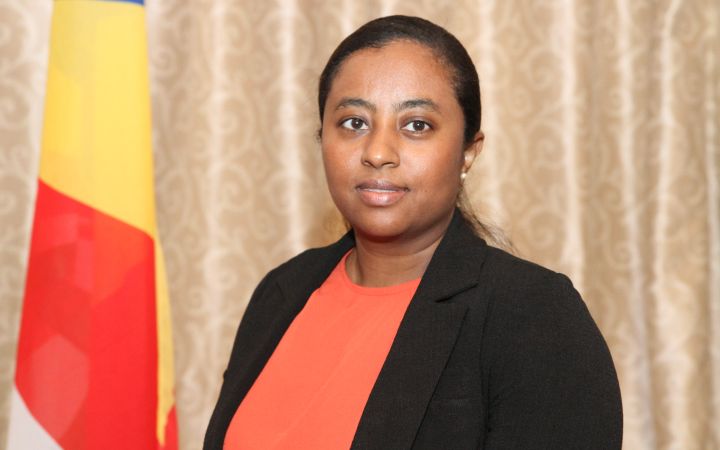Support to national planning to the government of Seychelles
In a world of rapid change and complex challenges, governments are increasingly recognizing the need to think ahead, plan better, and work together. The Ministry of Finance, National Planning and Trade of Seychelles realized the potential of strategic foresight and systems thinking for adopting a more integrated approach to strategic planning. What started as a collaboration between the government of Seychelles, the Resident Coordinator Office (RCO) for Mauritius and Seychelles in 2022, the United Nations Department of Economic and Social Affairs (UN DESA), and UNITAR, is gradually evolving into a way of working for the Ministry.
Recognizing that real change starts from within and that any changes in organizational culture need buy-in from senior decision makers, UN partners – working as One - supported the organization of a Training of Trainers (ToT) on strategic foresight and systems thinking targeting a core group of around 20 representatives from the Ministry. Staff were tasked with preparing presentations and exercises, building the confidence to later lead sessions across other Ministries and government agencies. In February 2024, the trained trainers facilitated training for principal secretaries (PS), CEOs, and key technical officers across ministries, departments, and agencies in Seychelles to promote the integration of strategic foresight and systems thinking into strategic analysis for sectoral plans and the budget process in the country.
Elizabeth Agathine, Principal Secretary, National Planning Department, Ministry of Finance, National Planning and Trade
According to PS Agathine, one of the most powerful outcomes of the collaboration has been the beginning of a shift in mindset. At the national level, she considers that, through tools like causal loop diagrams, staff across Ministries have started to see how interconnected their work truly is to the work of other government agencies. While challenges remain, this has marked a move away from a siloed approach towards a growing appreciation for collaboration. Policies, budgets, and strategies are increasingly viewed not in isolation, but as elements within a broader, interlinked system.
Within the Ministry of Finance, the appreciation of policies as interlinked elements has fostered a stronger appreciation for stakeholder consultation, especially during policy development and review processes. PS Agathine noted that involving diverse perspectives not only improves policy coherence but also strengthens ownership, accountability, and alignment with national goals.
Moreover, economists and budget analysts at the Ministry have started to approach their work differently. Budget proposals are no longer just numbers, they are increasingly being scrutinized for alignment with national development goals and cross-sectoral impacts. Staff adopted a more analytical, critical, and strategic approach. For instance, climate risk and disaster preparedness were integrated into budget planning through tagging exercises, steps towards making fiscal choices more sustainable and forward-looking.
Things become better when they are informed. If we embed systems thinking, it enables a more agile response and adaptive governance
For PS Agathine, what made this initiative stand out was the nature of the partnership. UN partners did not just deliver training and leave, but they co-created the process with and walked alongside the Ministry providing ongoing backstopping support. This joint approach built trust, ownership, and long-term capacity.
The process has not been easy. One key lesson for PS Agathine is the importance of ownership and political commitment. The Ministry realized that embedding strategic foresight into planning required more than just training, it needed cultural change, ongoing support, and clear direction. Another important takeaway was the value of supporting materials. Having practical tools like recorded videos, guidelines, and online introductory courses proved useful for staff to revisit concepts or become better prepared when engaging in their initial training experiences.
Looking ahead, the Ministry aims to embed foresight and systems thinking across all aspects of planning, budgeting, and policy development as a core part of its institutional processes.


